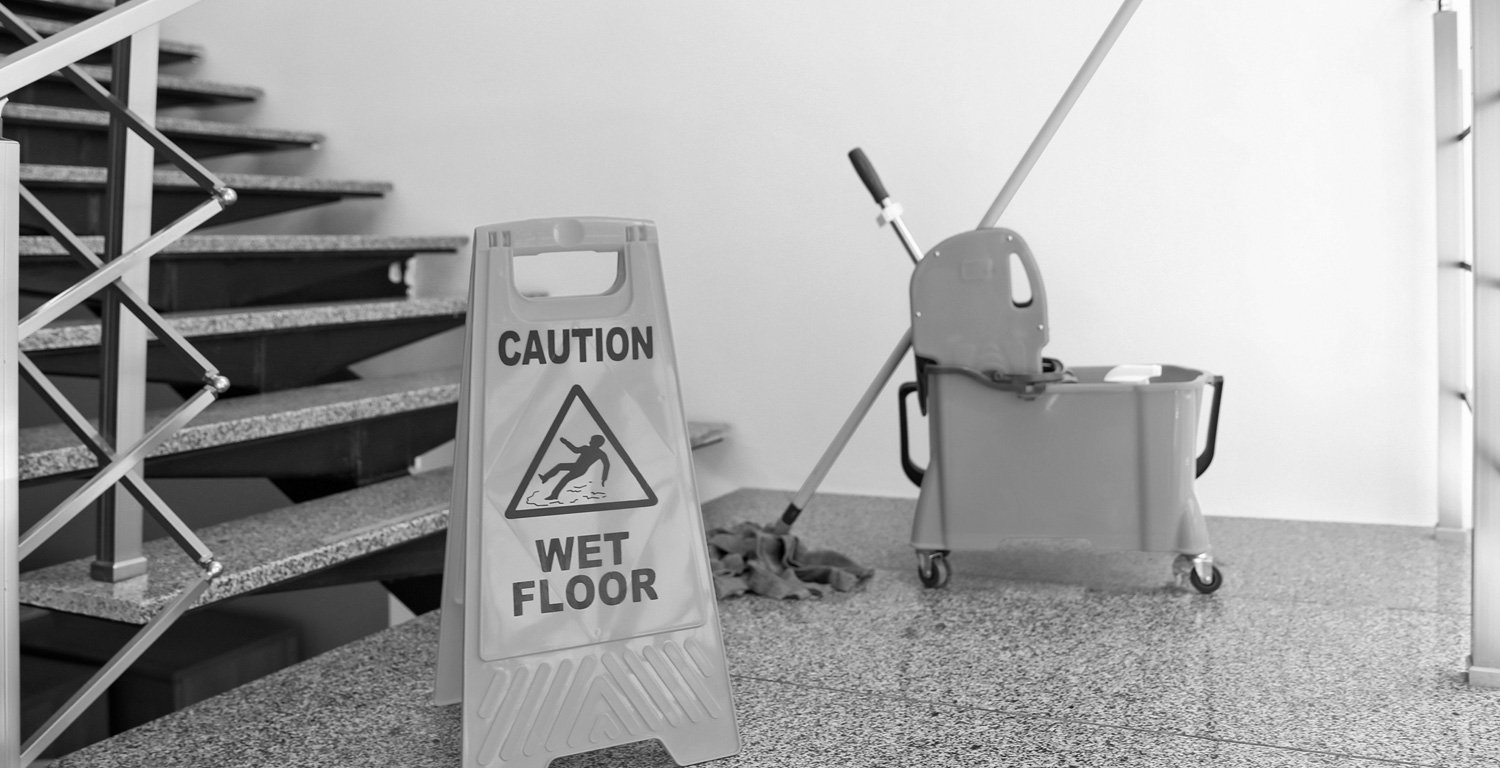
Key Takeaways:
- Workplace Negligence Defined: It encompasses various forms such as negligent hiring, inadequate training, and failure to maintain a safe environment, highlighting the importance of employer diligence.
- Consequences and Prevention: Negligence leads to physical, psychological, and legal repercussions, underscoring the need for proactive measures like safety audits and comprehensive training.
- Legal Recourse Available: Victims can seek justice through personal injury claims, workers' compensation benefits, and the guidance of experienced attorneys to navigate the complexities of compensation law.
Workplace negligence is a crucial aspect of personal injury law.
It refers to an employer's failure to provide a safe work environment, leading to potential harm.
Understanding this concept is vital for employers and employees, as it influences compensation claims and legal actions.
This article will explore common examples of employer negligence, legal frameworks for personal injury claims, and steps for seeking compensation including hiring a workplace negligence attorney.
By exploring common examples of workplace negligence, we aim to illuminate its implications and the importance of maintaining a safe and just working environment.
Table Of Contents
- Types of Workplace Negligence
- Consequences of Workplace Negligence
- Preventing Workplace Negligence
- Legal Remedies for Victims of Workplace Negligence
- Safeguarding Your Rights Against Workplace Negligence
Types of Workplace Negligence
Negligent Hiring Practices
Employers have a duty of care to ensure that they conduct thorough background checks and verify the qualifications of potential employees.
Failing to do so can lead to hiring individuals who pose a risk of harm to fellow employees or customers, resulting in potential legal action for negligent hiring.
Example: A company that hires a driver without checking their driving record could be liable if the driver causes an accident due to a history of reckless driving.
Inadequate Training and Supervision
Proper training and supervision are essential for maintaining a safe work environment.
Negligent training or lack of adequate supervision can lead to work-related injuries, as employees may be unaware of how to perform their duties or handle dangerous equipment safely.
Example: An employee who is not properly trained to operate machinery may suffer an injury due to improper handling.
Failing to Provide a Safe Working Environment
Employers are responsible for ensuring that the workplace is free from hazardous conditions.
This includes maintaining safety equipment, adhering to safety protocols, and taking necessary precautions to prevent accidents.
Negligence in this area can lead to personal injury claims and compensation claims for medical expenses and emotional distress.
Example: A construction company that fails to provide hard hats and safety harnesses puts its workers at risk of serious injury.
Negligent Retention of Employees
Retaining employees who have demonstrated dangerous or erratic behavior can be considered negligence.
Employers should take disciplinary action or terminate employees who threaten the safety of others in the workplace.
Example: An employer who ignores complaints about an aggressive employee may be liable if that employee later assaults a coworker.
Lack of Proper Safety Equipment and Protocols
Providing adequate safety equipment and implementing safety protocols are crucial for preventing injuries.
Negligence in this area can result in personal injury lawsuits, which require a compensation attorney to address the consequences of workplace negligence.
Example: A laboratory that fails to provide proper protective gear, such as gloves and goggles, exposes its employees to hazardous chemicals.
Negligent Supervision and Adequate Supervision
Adequate supervision ensures that employees adhere to company policies and safety guidelines.
Negligent supervision, on the other hand, can lead to employees engaging in careless behavior or failing to follow safety procedures, harming themselves or others.
Example: A supervisor who fails to enforce safety rules during a construction project may be responsible for any resulting accidents.
Lack of Security
Ensuring the security of personal and business information is a crucial responsibility of employers.
Negligence in this area can lead to data breaches, theft of sensitive information, and legal consequences for failing to protect the privacy of employees and customers.
Example: A company that neglects to secure its database against hackers may be liable for the exposure of employee and customer data.
Product and Premises Liability
Businesses must maintain safe premises and ensure that their products are free from defects that could cause harm.
Negligence in maintaining facilities or in the design, production, or marketing of products can lead to accidents and injuries, resulting in liability for the business.
Example: A retailer that sells a defective appliance that causes a consumer injury may face a product liability lawsuit.

Consequences of Workplace Negligence
Workplace negligence can have serious and far-reaching consequences, affecting employees and employers.
Workers can sustain severe physical injuries or psychological trauma, requiring medical treatment and leading to personal injury claims.
Employers, on the other hand, may face negligence lawsuits, which can result in compensation payments and damage to their reputation.
The financial implications of workplace negligence can be significant, with increased insurance premiums, compensation claims, and medical expenses adding to the burden.
Moreover, negligence in the workplace can erode morale and productivity, as employees may feel unsafe and undervalued.
The impact of negligence extends beyond the immediate legal and financial repercussions, affecting the overall well-being of the workplace and the lives of those involved.
Preventing Workplace Negligence
Employers must take proactive steps to mitigate the risk of workplace negligence.
Implementing comprehensive background checks is essential to ensure the hiring of qualified and safe employees, thereby reducing the likelihood of negligent hiring.
Providing proper training and equipment is crucial for maintaining a safe work environment and preventing work-related injuries.
Regular safety audits and risk assessments help identify potential hazards and implement corrective measures to avoid accidents.
Encouraging employees to report unsafe practices fosters a culture of safety and accountability, allowing for prompt action to prevent negligent behavior.
By prioritizing these preventive measures, employers can create a safer workplace, minimize the risk of legal action, and protect both employees and the company from the consequences of negligence.
Legal Remedies for Victims of Workplace Negligence
Victims of workplace negligence have several legal avenues to seek justice and compensation.
Personal injury claims and lawsuits can be filed to recover damages for physical injuries, emotional distress, and financial losses caused by employer negligence.
Workers' compensation benefits provide a crucial safety net, offering coverage for medical expenses and lost wages resulting from work-related injuries.
However, navigating the complexities of compensation law and insurance company negotiations can be challenging.
That's why seeking legal advice from experienced attorneys specializing in personal injury law is essential.
A skilled personal injury attorney can help victims understand their rights, build a strong negligence claim, and secure the maximum compensation for their suffering.
Victims can hold negligent employers accountable by taking legal action and ensuring they receive the support they need to recover and move forward.

Safeguarding Your Rights Against Workplace Negligence
Addressing workplace negligence is crucial for maintaining a safe and productive work environment.
Employers must prioritize safety protocols, and employees should remain vigilant and report unsafe practices.
Taking proactive steps can significantly reduce the risk of accidents and legal repercussions.
If you've experienced workplace negligence, don't hesitate to seek legal advice.
Our experienced personal injury attorneys are here to help you navigate your rights and secure the compensation you deserve.
Contact The Law Offices of Julian Lewis Sanders & Associates for a free consultation and take the first step towards justice and recovery.
Posted by Julian Lewis Sanders
At The Law Offices of Julian Lewis Sanders & Associates, we understand the gravity of personal injury situations - it's our priority. Committed to aiding you in your time of need, we specialize in listening to your story, discerning your individual needs, and swiftly executing strategic actions to secure the compensation you deserve. Based in Georgia, our legal team comprises experienced personal injury attorneys dedicated to delivering optimal service tailored to your unique circumstances.
Facebook

